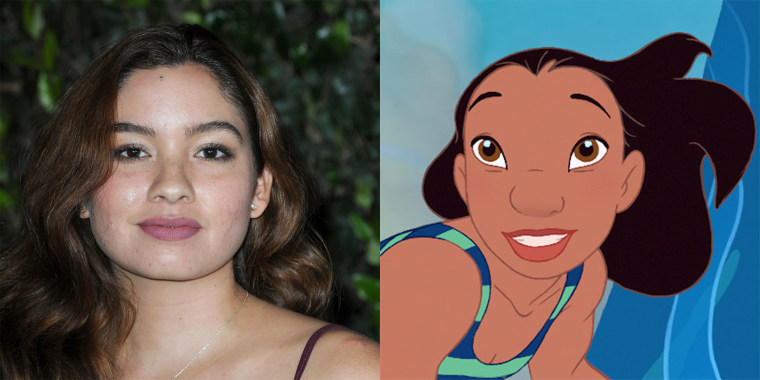Following news that “Lilo & Stitch” will be the latest Disney classic to get the live-action treatment, fans of the 2002 animated movie were abuzz with predictions and desires for who would take on the iconic Native Hawaiian roles. Many were left disappointed Friday when Disney announced the casting of a biracial, light-skinned actor in the role of Nani, Lilo’s older sister, who in the original movie was drawn with darker skin, black hair and ethnic features.
“Not being Indigenous or from a PoC community, it may not be easy to see a problem with this casting, but within our communities this is a big issue,” one person tweeted. “Nani is Indigenous Hawaiian with strong features and dark skin, this casting is blatant colorism.”
Disney did not respond to a request for comment.
In the 2024 adaptation of “Lilo & Stitch,” Nani will be played by 22-year-old Sydney Elizabeth Agudong, who is multiracial with Hawaiian ancestry. Newcomer Maia Kealoha will play 6-year-old Lilo, and Zach Galifianakis has joined the cast in an unspecified role.
While some celebrated the casting, many Native Hawaiian fans said they were hoping for an actor who wasn’t white-passing and whose features reflected those of the island’s Indigenous population.
“Listen, she’s probably a lovely woman but I can’t help but feel disappointed,” another person tweeted. “I wanted Nani to look like me.”
Some say this is a pattern with Disney projects.
Nani’s reimagining parallels the controversy around the casting of Princess Jasmine in Disney’s 2019 live-action remake of “Aladdin,” fans tweeted. The sultan’s daughter in the fictional Agrabah (the setting and language of which some critics said was an indecisive mix between South Asia and the Middle East), was played by Naomi Scott, a biracial British actor of Indian ancestry.
Audiences called her casting out as whitewashing of the original character, who was the only Disney princess with darker skin at the time of the animated movie’s release in 1992.
Disney also caught heat in 2018 for changing Tiana — the studio’s first Black princess, from “The Princess and the Frog” — by portraying her with lighter skin and looser curls in an unreleased version of “Ralph Breaks the Internet.”
After images of this new depiction surfaced online, Disney reanimated the scene, facing backlash from fans and feedback from the voice actor who played Tiana. They eventually reverted the character’s looks closer to her depiction in “The Princess and the Frog.”
“Stop glorifying eurocentric beauty standards in the name of erasing characteristics and features,” a fan tweeted. “Give darker skinned pacific islanders the visibility we deserve.”

